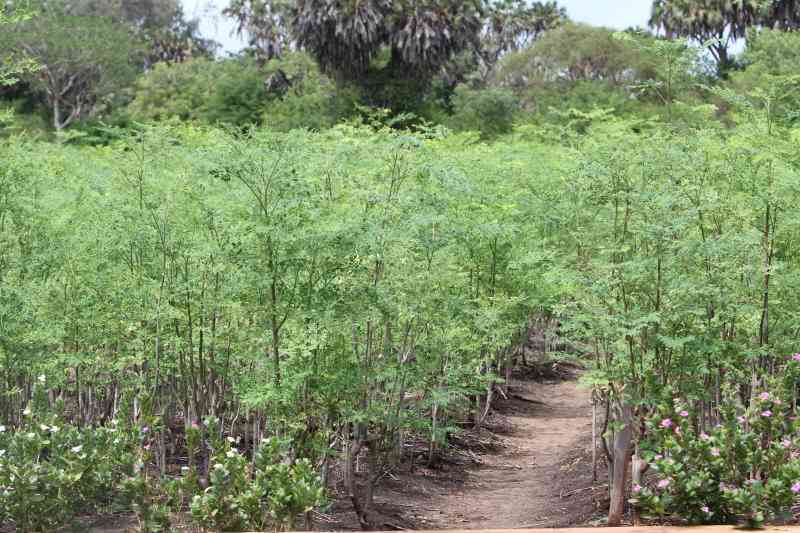×
The Standard e-Paper
Join Thousands Daily

[Jennipher Wachie, Standard]
In the heart of the sun-baked Makueni County, where the earth breathes warmth all year round, stands a grove of emerald sentinels - the moringa trees.